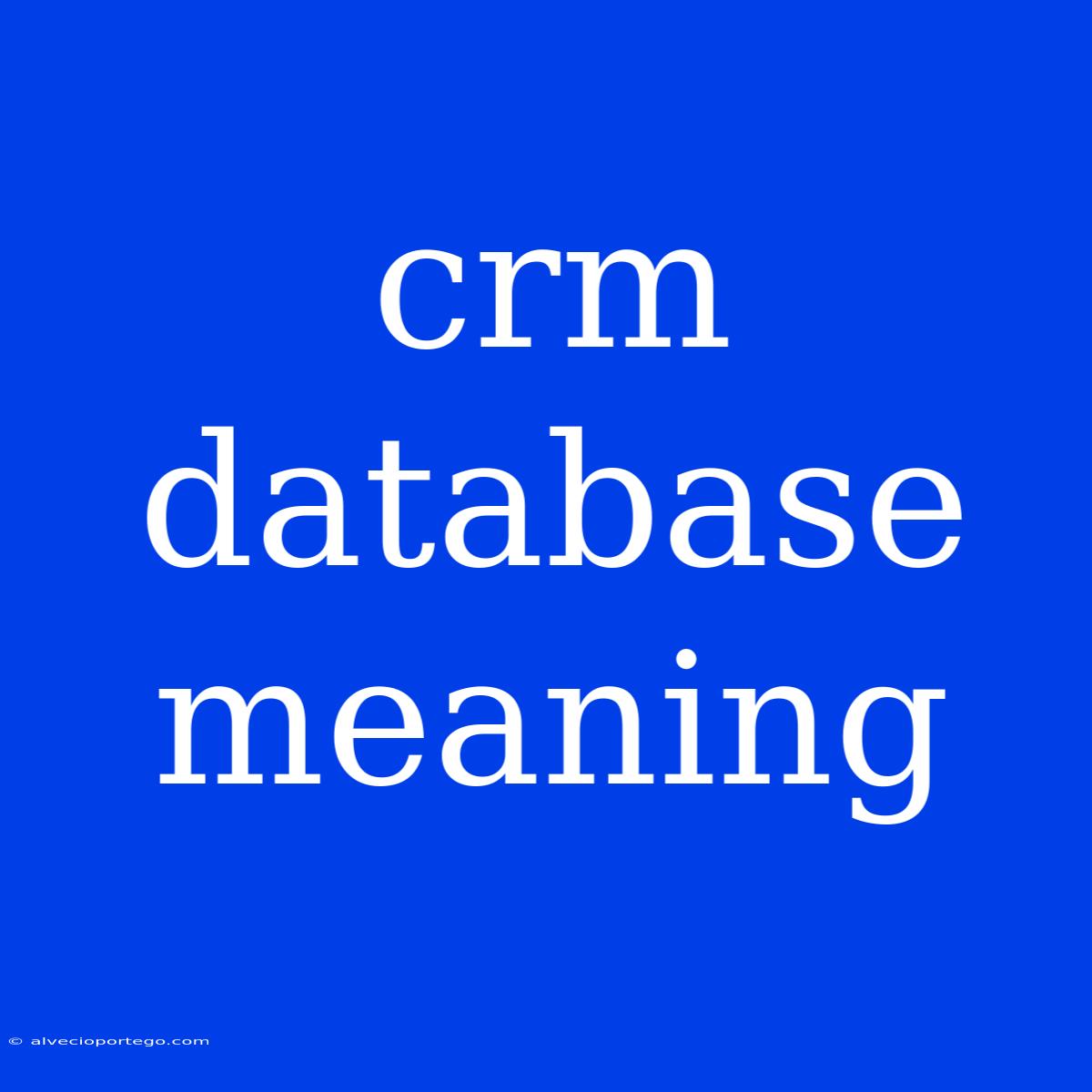What is a CRM Database?
A CRM database is the heart of a Customer Relationship Management (CRM) system. It's a centralized repository of all your customer data, providing a comprehensive view of each customer interaction and helping you manage relationships effectively.
Think of it as a digital filing cabinet for all your customer information, organized and easily accessible. This database is the foundation for making informed decisions about marketing, sales, and customer service strategies.
What Information Does a CRM Database Store?
A CRM database stores a wide range of information about your customers, including:
Contact Information:
- Basic details: Names, addresses, phone numbers, email addresses
- Social media profiles: Links to their accounts on platforms like Facebook, Twitter, LinkedIn
- Company information: For business customers, details about their organization, industry, and size
Customer Interactions:
- Sales history: Purchase records, order details, quotes, and invoices
- Marketing interactions: Email campaigns, website visits, social media engagement
- Support interactions: Tickets, chat logs, phone call records
Customer Preferences:
- Demographics: Age, gender, location, interests
- Purchase history: Frequently bought products or services
- Feedback and reviews: Opinions about your products or services
Other Relevant Data:
- Customer segmentation: Grouping customers based on shared characteristics
- Lead scoring: Ranking potential customers based on their likelihood to convert
- Customer lifetime value: Estimated total revenue a customer will generate over their relationship with your business
Benefits of Using a CRM Database:
- Improved Customer Understanding: Gain insights into customer needs, preferences, and behavior.
- Personalized Customer Experiences: Deliver tailored messaging and offers based on customer data.
- Efficient Sales Processes: Streamline sales activities and track deals more effectively.
- Enhanced Customer Service: Provide quicker and more personalized support to resolve customer issues.
- Effective Marketing Campaigns: Create targeted campaigns based on customer segments and interests.
- Data-Driven Decision Making: Make informed decisions based on real-time data and insights.
Types of CRM Databases:
- On-premise CRM: Databases hosted on your own servers, giving you full control over data.
- Cloud-based CRM: Databases hosted by a third-party provider, offering scalability and accessibility.
- Open-source CRM: Customizable databases with free access to the underlying code.
Choosing the Right CRM Database:
The best CRM database for your business depends on several factors, including:
- Size and complexity of your customer base
- Budget and resources
- Specific business needs and goals
By carefully considering your requirements and exploring available options, you can find a CRM database that effectively meets your needs and helps you build stronger relationships with your customers.

